P.I. Tchaikovsky opera "Iolanta"
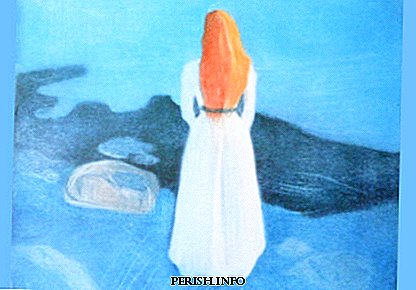
Opera PI Tchaikovsky "Iolanta" refers to the genre of lyrical musical drama. It was created in 1891 from July to September and became the last opera of the composer. “I will write such an opera that everyone will cry,” said the great Russian composer, while working on his work. He really managed to do this, although the audience’s tears come from happiness and joy for the characters. Opera "Iolanthe"is considered to be the most rosy and serene composition of the author. It was created according to the poetic drama of Heinrich Hertz" The Daughter of King Rene ", translated by F. Miller and remade later by V. Zotov.
Summary of the opera Tchaikovsky "Iolanthe" and a lot of interesting facts about this work, read on our page.
Characters | Vote | Description |
| Iolanthe | soprano | blind girl, daughter of the king of provence |
| Rene | bass | King of Provence, master of the castle, father of Iolanta |
| Robert | baritone | Duke of Burgundy, beloved groom Iolanta |
| Gottfried Vaudemont | tenor | Burgundian knight in love with Iolanthe |
| Ebn Hakia | baritone | doctor from Mauritania |
| Almerik | tenor | squire Rene |
| Bertrand | bass | the gatekeeper in the castle |
| Martha | contralto | spouse of the gatekeeper, nurse of the daughter Rene |
| Laura and Brigitte | mezzo-soprano and soprano | girlfriends Iolanta |
Summary "Iolanta"
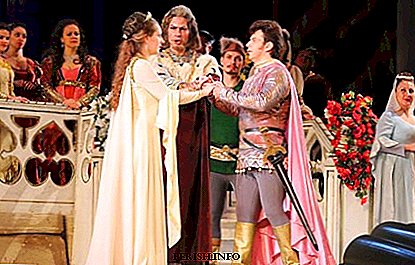
XV century, French Provence. The action takes place in the old ancestral castle Rene, reigning in Provence. His only heiress Iolanthe in early childhood completely lost sight. A loving father forbade everyone to talk about the possibility of seeing, so the girl did not suspect that she was different from others. Her life was spent in the love and care of others. Father, servant, nurse, girlfriend - all were kind and caring.
The father did not give up trying to cure his beloved daughter. The doctor from Mauritania Ebn Hakia, who arrived at his invitation, examined the blind girl while she was sleeping. His conclusions led his father into confusion. The doctor said that Iolanthe should know that she is blind, only with a strong desire to see the girl, there is hope for healing after the operation. For a father who had protected her beautiful daughter from the truth all her life, telling Iolanthe about her blindness was a very difficult step.
Two noble youths arrived at the castle: the Duke of Burgundy Robert and the knight Gottfried Vaudemont. Duke Robert and Iolanta got engaged as a child, their parents decided so, the young people themselves have never seen each other. In the heart of the young man there lived a love for Matilda, the Countess of Lorraine, but he did not dare to disobey the order of his parents and came to Provence to enter into marriage.
Having lost their way, the young men happened to be in the garden of the castle, where beautiful Iolanthe was sleeping peacefully on the terrace. The beauty of the girl won the heart of the Burgundian knight Gottfried. Waking up, the girl offered them wine and fruit, but Robert decided to retire on the pretext of searching for the lost entourage. Iolanthe and Vaudemont remained together.
Asking the girl to give him a red rose, Vaudemont discovers a terrible truth for himself - Iolanthe is completely unable to see. The young man told the blind beauty about how beautiful the world is.
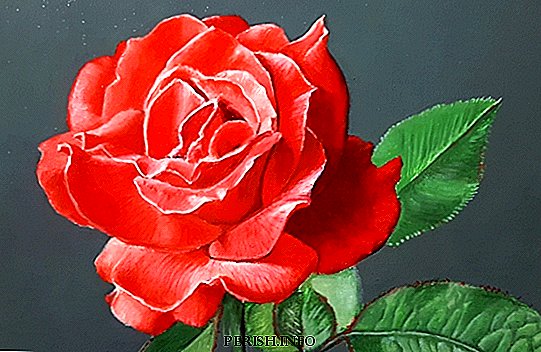
Renée is falsely threatening the knight with execution if he does not begin to see Iolanta after the operation. The girl fell in love with an ardent young man and dreams of healing in order to save her beloved from death.
The doctor proceeds with the operation, since he wanted just such a state of mind of his patient. At this time, Robert returned to help out a friend. His meeting with King Rene was unexpected, but fateful. He confessed everything to the ruler of Provence and relied on his generosity. The young man spoke about his love for Matilda and promised that he would marry Iolanta, but he explained that he could not love her. The king freed the young man from this word and did not insist on marriage.
The gatekeeper appears and reports that the operation was successful - the beautiful Iolanthe saw his sight. King Rene is incredibly happy. He blessed the marriage of his daughter with the knight Vodemon. All rejoice and praise God, the sun and the light.
| Duration of performance |
| I Act |
| 100 min |
A photo:
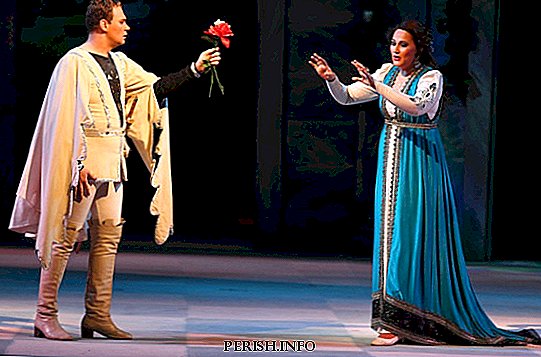
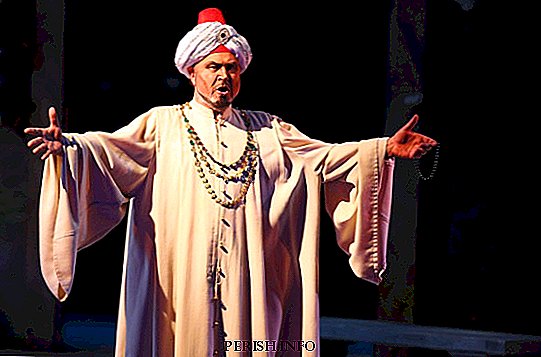
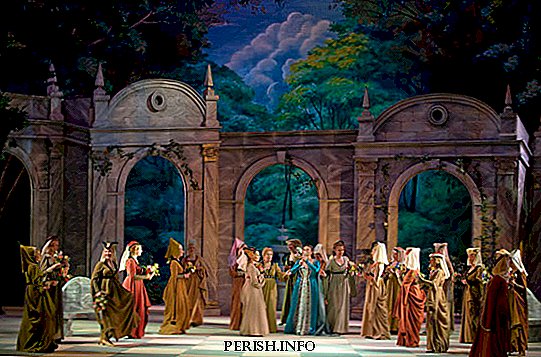
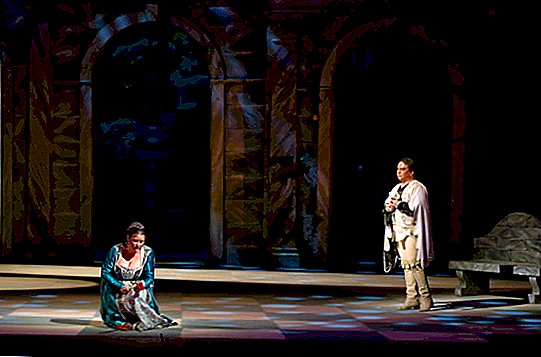
Interesting Facts
- Chaikovsky I began to write a work with a finale.
- At the request of the composer, his brother Modest Petrovich Tchaikovsky wrote a libretto on the plot of Hertz as amended by Zotov.
- Simultaneously with the appearance of the opera "Iolanta" on the stage, in the Russian editions appeared the story of Korolenko "The Blind Musician". Despite the different historical colors, a clear identity of the storyline is seen, the superiority of spiritual beauty over the visual appeal is revealed. The tool with the blindness of the main characters serves as a tool for exposing this thought. Interestingly, in both works, the blind girl or young man chooses a flower of the wrong color.
- The presence in the plot of the two flowers of red and white, many historians believe is not accidental. At the time of writing the drama of G. Hertz, the confrontation of the parties of the Red and White Rose was born, which later developed into a bloody war. Many French dukedoms in one way or another took part in it. For example, the head of the White Rose Party, Edward IV, later fled to Burgundy, sympathizing with him.
- For some time on the national scene it was forbidden to include kings and queens in the plot, so King Rene was replaced by Count Rene. The same fate befell the opera "Christmas Eve" and "Cherevichki"in which Catherine II was replaced by Potemkin.
- The French ruler Rene Anjou, who served as the prototype of King Rene, actually existed. He was a significant figure in France at that time. Interestingly, his mother and daughter bore the name Yolanda, although both had good eyesight. Which of them became the prototype of the blind girl Iolanta remains unknown.
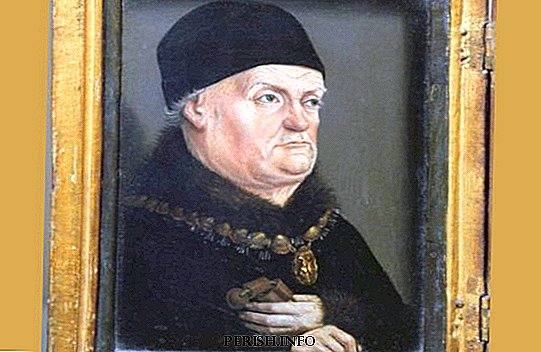
- In the Soviet Union, opera productions lost their Christian-religious coloring, since such an interpretation of the work was strictly prohibited. The miracle of healing the main character, which relates to divine conduct, as well as love, and the successful resolution of a disputed situation with the wedding, it was decided to attribute to the skill of the doctor and Rene's prudence. This completely changed the direction and essence of the drama.
- Originally, the opera had only one action. Currently it includes two actions.
- Since the opera "Iolanthe" was written as a one-act work, it was planned to combine it with another, two-act. Three acts - a classic version of theatrical evening. Tchaikovsky proposed, along with "Iolanta," to show a two-act balletNutcracker". Subsequently, the composer, having become acquainted with the opera of nineteen Rachmaninoff"Aleko", came to such delight that he put this one-act work instead of his own ballet.
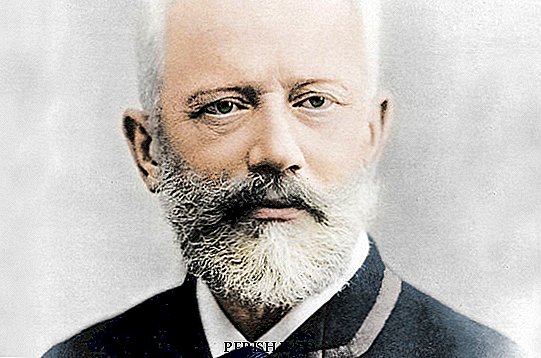
- Describing the cold darkness that surrounds Iolanthe at the beginning of the piece, Tchaikovsky uses a wooden brass band of instruments. Such a move was completely non-standard and caused a lot of controversy among contemporaries.
- In Madrid, on the stage of the Royal Theater "Real", director P. Sellers after Iolanta put the melodrama Persephone in the second act, using the same stage and decoration design.
- In 2015, at the Bolshoi Theater, it was decided not only to reunite Iolantu and The Nutcracker in a single theatrical evening, but to make a single performance out of these works.
Popular arias from the opera "Iolanta"
Arioso Iolanta "Why did not I know it before" - listen
Robert's aria "Who can compare with my Matilda" - listen
Arioso of King Rene - listen
First productions
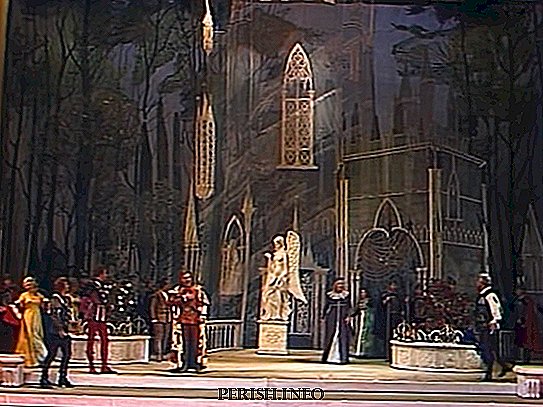
The audience saw the premiere at the Mariinsky Theater of the northern capital at the end of 1892. Alexander III attended the dress rehearsal on December 5. The debut was with the conductor Edward Napravnik, the ballet was conducted by Riccardo Drigo. In November 1893, the opera was staged at the Bolshoi Theater by director Lossky. Conducted by Hippolyte Altani.
After the October Revolution, Pashkovsky first staged "Iolantu" in Leningrad at the Maly Opera Theater, conducted by Samosud. Later the work was shown on the stages of many cities of the USSR. Opera performances continued during World War II.
The world public for the first time was able to evaluate the opera in German in 1893 in the city of Hamburg. Performances were also held in many European cultural centers. In 1933, the Russian version was shown in the United States of America.

Leave Your Comment